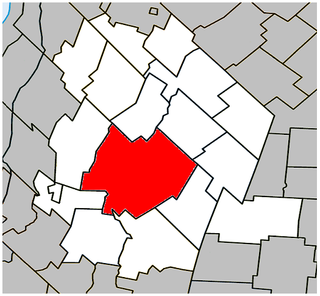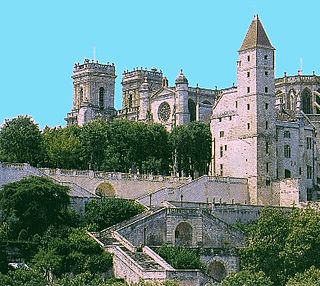| Look up hyacinthe in Wiktionary, the free dictionary. |
Hyacinthe is a given name. It is generally a male name. The form Hyacinth may be masculine or feminine.
| Look up hyacinthe in Wiktionary, the free dictionary. |
Hyacinthe is a given name. It is generally a male name. The form Hyacinth may be masculine or feminine.
| This page or section lists people that share the same given name. If an internal link led you here, you may wish to change that link to point directly to the intended article. |
Dominic is a name common among Roman Catholics and other Latin-Romans as a boys name. Originally from the late Roman-Italic name "Dominicus", its translation means "Lordly", "Belonging to God" or "of the Master". Variations include: Dominicus, Dominik, Dominick, Domenic, Domenico (Italian), Domanic, Domonic, Domingo (Spanish), Dominykas (Lithuanian), Domingos (Portuguese), Dominggus; and the feminine forms Dominica, Dominika, Domenica, Dominga, Domingas; as well as the unisex French origin Dominique.

Saint-Hyacinthe is a city in southwestern Quebec east of Montreal on the Yamaska River. The population as of the 2016 Canadian Census was 55,648. The city is located in Les Maskoutains Regional County Municipality of the Montérégie region, and is traversed by the Yamaska River. Quebec Autoroute 20 runs perpendicular to the river. Saint-Hyacinthe is the seat of the judicial district of the same name.
Conti is an Italian surname.

Auch is a commune in southwestern France. Located in the region of Occitanie, it is the capital of the Gers department. Auch is the historical capital of Gascony.

Hyacinth was a Polish Dominican priest and missionary who worked to reform women's monasteries in his native Poland. He was a Doctor of Sacred Studies, educated in Paris and Bologna.
José is a predominantly Spanish and Portuguese form of the given name Joseph. While spelled alike, this name is pronounced differently in each language: Spanish [xoˈse]; Portuguese [ʒuˈzɛ].
Saint Augustine of Hippo (354–430), was a Church Father.
Marini is a surname of Roman/Italian Catholic origin; closely associated with the last names: Marino and Mariani with the three patronymic forms emerging from the same region at approximately the same time. Migrations branching from Italy ca.1600 gave rise to their modern forms as surnames. The Marinid dynasty was a Sunni Muslim dynasty of Zenata Berber descent that ruled Morocco from the 13th to the 15th century.

Gaetano is an Italian masculine given name. It is derived from the Latin Caietanus, meaning "from Caieta". The given name has been in use in Italy since medieval period, although it also remained in use as a byname indicating people from Gaeta, as in Thomas Cajetan or Gaetanus (1469–1534). The modern given name can be traced to Saint Gaetano dei Conti di Tiene (1480–1547) who was canonized in 1671. Other variants of the name exist in other Romance languages, the French form of the name is Gaëtan, Gaétan, the Portuguese form is Caetano, and the Spanish form is Cayetano. The feminine form is Gaetana.
Antonin, Antonín, and Antoñín are masculine given names. Antonín, a Czech name in use in the Czech Republic, and Antonin, a French name in use in France, Switzerland, Belgium, Canada, West Greenland, Haiti, French Guiana, Madagascar, Benin, Niger, Burkina Faso, Ivory Coast, Guinea, Senegal, Mauritania, Western Sahara, Morocco, Algeria, Tunisia, Chad, Central African Republic, Cameroon, Equatorial Guinea, Gabon, Republic of the Congo, Democratic Republic of the Congo, Burundi, and Rwanda, are both considered alternate forms of Antonino. Antoñín, a Spanish name in use in Spain, parts of the United States, Mexico, Guatemala, Honduras, El Salvador, Nicaragua, Costa Rica, Western Panama, Colombia, Venezuela, Peru, Ecuador, Bolivia, Chile, Paraguay, Argentina, Uruguay, and the Falkland Islands, is a diminutive form of Antonio. As a surname it is derived from the Antonius root name. Notable people with these names include the following:
Events from the year 1876 in France.
This is a list of persons named after Saint Francis Xavier. The list includes cognates of the name Francis Xavier in other languages, including:
Tommaso is an Italian given name. It has also been used as a surname. Notable people with the name include:
Maurice is a traditionally masculine given name, also used as a surname. It originates as a French name derived from the Latin Mauritius or Mauricius and was subsequently used in other languages. Its popularity is due to Mauritius, a saint of the Theban Legion. Mauritius is otherwise attested as a given name of the Roman Empire period, in origin meaning "one from Mauritania", i.e. "the Moor".

The St. Hyacinth's Cathedral also called Cathedral of St. Hyacinthe the Confessor is a religious building of the Catholic Church which was built in 1880. It is located in Saint-Hyacinthe, Quebec in eastern Canada, it is the main church of the diocese of the same name. It is named in honour of St. Hyacinth of Poland.
Carlo is an Italian and Spanish masculine given name and a surname. As an Italian name it is a form of Charles. As a Spanish name it is a short form of Carlos. Notable people with this name include the following:
Karol is a Basque, Danish, Finnish, Norwegian, Polish, Slovak, Slovene, and Swedish masculine given name that is a form of Karl or Karolus. Notable people with the name include the following: